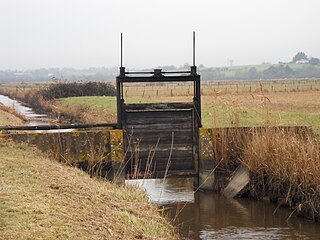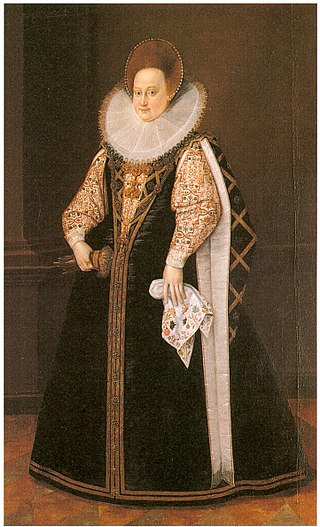
A rosé is a type of wine that incorporates some of the color from the grape skins, but not enough to qualify it as a red wine. It may be the oldest known type of wine, as it is the most straightforward to make with the skin contact method. The pink color can range from a pale "onionskin" orange to a vivid near-purple, depending on the grape varieties used and winemaking techniques. Usually, the wine is labelled rosé in French, Portuguese, and English-speaking countries, rosado in Spanish, or rosato in Italian.

The Selke Valley Railway (Selketalbahn), Gernrode-Harzgerode Railway and the Anhalt Harz Railway were different names for the metre gauge railway in the Lower Harz, Germany, originally owned by the Gernrode-Harzgerode Railway Company.

Falkenstein/Harz is a town in the Harz district, in Saxony-Anhalt, Germany. It was created in 2002 by merging the town of Ermsleben with the former municipalities of Endorf, Meisdorf, Neuplatendorf, Pansfelde, Reinstedt und Wieserode. The new community was named after Falkenstein Castle.

Seeland is a town in the Salzlandkreis district, in Saxony-Anhalt, Germany. It is situated northwest of Aschersleben. It was formed by the merger of the previously independent municipalities Friedrichsaue, Frose, Hoym, Nachterstedt and Schadeleben on 15 July 2009. Before this date, these municipalities cooperated in the Verwaltungsgemeinschaft Seeland, which also contained the municipality Gatersleben. Gatersleben joined Seeland in September 2010.

Dorothea Maria of Anhalt, was by birth a member of the House of Ascania and princess of Anhalt. After her marriage, she became Duchess of Saxe-Weimar.

Gernrode Abbey was a house of secular canonesses (Frauenstift) in Gernrode in what is now Saxony-Anhalt, Germany. Gernrode was founded in 959 and was disestablished in the seventeenth century. In the Middle Ages the abbey was an Imperial abbey, which had the status of imperial immediacy, and an Imperial State. In the early modern period, the abbey was part of the Upper Saxon Circle.

Frossay is a commune in the Loire-Atlantique department in western France.

Sibylla of Anhalt was a German princess from the House of Ascania who became Duchess of Württemberg as the wife of Duke Frederick I.

Lebrecht, Prince of Anhalt-Zeitz-Hoym, was a German prince of the House of Ascania.

Anna Maria of Anhalt, was by birth a member of the House of Ascania and a princess of Anhalt. After her marriage, she was Duchess of Legnica-Brzeg-Oława-Wołów.

Makedonija Zasekogaš often credited as Makedonija Zasekogash, is a project made by the Agency for youth and sport of Macedonia realized with an album. The album consists of 14 traditional Macedonian songs with new arrangement sung by the Macedonian music stars.

Adelaide I, a member of the royal Ottonian dynasty was the second Princess-abbess of Quedlinburg from 999, and Abbess of Gernrode from 1014, and Abbess of Gandersheim from 1039 until her death, as well as a highly influential kingmaker of medieval Germany.
Elisabeth of Anhalt was a German abbess of the secular abbeys at Gernrode and Frose as Elisabeth III of Anhalt. After she left the convent, she became Countess of Barby by marriage.

The Frose–Quedlinburg railway, also called the Balkan ("Balkans") locally, was a standard gauge branch line on the northern rim of the Harz Mountains in the German state of Saxony-Anhalt. The line runs from Frose via Gernrode to Quedlinburg. It was closed in 2004. The Gernrode–Quedlinburg section was subsequently converted by the Harz Narrow Gauge Railway Company to metre gauge. Since 26 June 2006 the line has been re-opened as part of the Selke Valley Railway.
Oxygaster pointoni is a freshwater ray-finned fish of the family Cyprinidae from the rivers of Indochina.

Mycteroperca fusca, the Island grouper or comb grouper, is a species of grouper from the family Serranidae which is endemic to the Macaronesian Islands in the eastern Atlantic. It is classified as Vulnerable in The IUCN Red List of Endangered Species.

Quedlinburg station is a station on the Magdeburg–Thale railway in Quedlinburg in the German state of Saxony-Anhalt. It was built in 1862 as a through station on the southern edge of the town. The Gothic Revival entrance building of 1862, together with the other parts of the nearly complete Gründerzeit ensemble, is heritage-protected.
Adalbert von Ballenstedtc. 970,, was Count of Ballenstedt, Vogt of the Nienburg Abbey, and the provost of Hagenrode. He is the earliest known ancestor of the House of Ascania.

Stanley Jack Froese is a Canadian politician who served as mayor of the Township of Langley, British Columbia, Canada from 2011 to 2022.
Frosé is a mixed drink made from rosé wine frozen to a slush, with strawberries, vodka, and lemon juice.




















